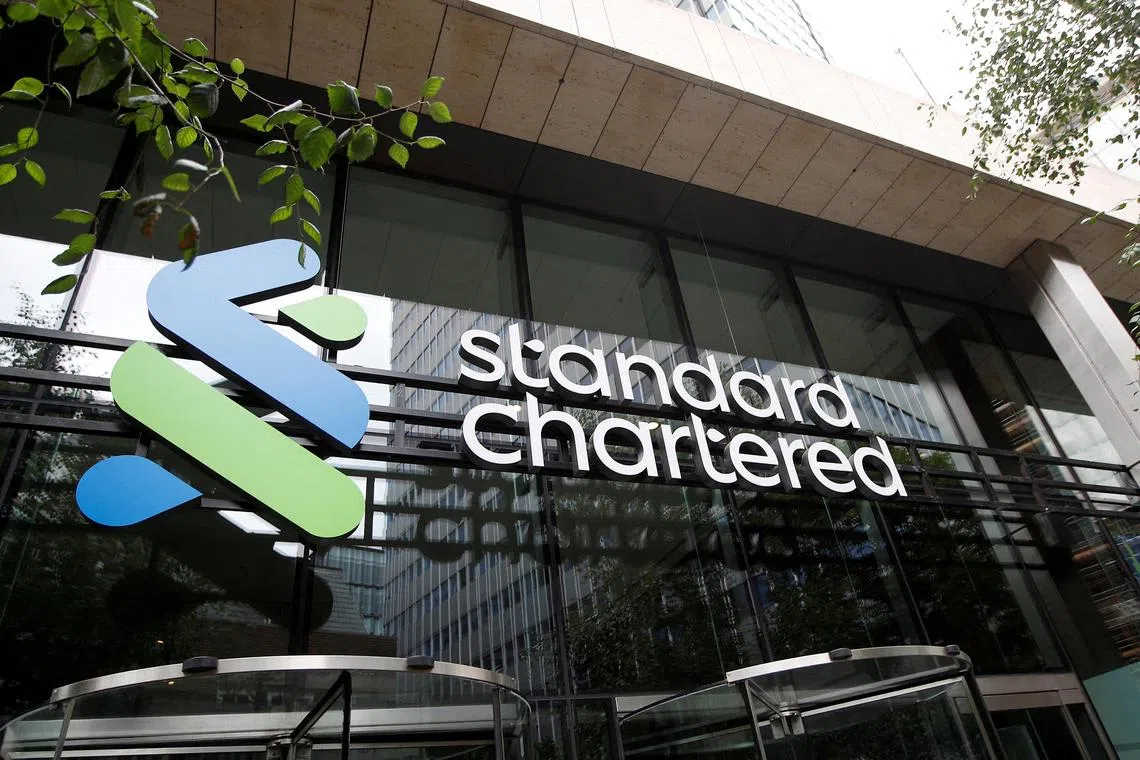As it connects China with the world, Standard Chartered bets on RMB internationalisation
The bank sees opportunities in China’s unfettered opening up of trade and investments

CHINA is the world’s second-largest economy with the highest amount of total trade, and so it’s no surprise that the country’s trade relations are so deeply integrated with the rest of the world.
However, the renminbi only represents 3.7 per cent of global payments, compared to the US dollar which makes up around half (46.6 per cent, as at September 2023).
Jean Lu, Standard Chartered’s head of corporate, commercial and institutional banking (China) and deputy chief executive officer (China), feels that the disparity signals a natural gap for the renminbi’s role in trade settlement, investment and as a reserve currency.
This gap will only become wider as Chinese companies continue to grow overseas and China’s capital markets continue to open up, she said.
She noted that Standard Chartered sees opportunities in bridging the gap between China and the global market, and it was one of the first international banks to make “renminbi internationalisation” a strategic priority.
With the widest overseas renminbi business coverage among international banks, Standard Chartered offers renminbi services in over 30 markets. It also holds the title of “Best Renminbi Bank” by The Asset Magazine in 20 of the 27 participating markets across Asia, the Middle East, Africa and Europe.
Navigate Asia in
a new global order
Get the insights delivered to your inbox.
Connecting China with the world
Standard Chartered views trade relations as “mutual trade corridors” and aims to “link China to the world through corridor businesses”.
“When we talk about the 40 years of China opening up, the first 10 or 20 years consisted mainly of Chinese companies expanding to Hong Kong,” said Lu. “However, over the past decade, we have seen Chinese companies extending their reach beyond Hong Kong to global markets.”
While there are certain trends of deglobalisation driven by geopolitical tensions, Lu observed that her Chinese clients have stayed resilient and are moving their manufacturing capacity – in particular their operations and management capabilities – to designated markets in response to rising protectionism sentiments.
Above all, she said South-east Asia continues to present opportunities to Chinese companies. The region is friendly, close in geographical locations, and shares many cultural similarities with China.
Asean is also consistently one of the top export destinations for China, representing 15.5 per cent of China’s total exports as at 2022.
“The uniqueness of Standard Chartered lies in the fact that it is the only international bank operating in all 10 Asean economies,” highlighted Lu.
In Singapore, Standard Chartered has established its largest team of corridor bankers serving many countries in the region, including Thailand, Malaysia, Indonesia and Vietnam.
The bank’s strong local understanding of regulations, policies, and culture positions it well to assist Chinese companies in “navigating new markets, localising operations, and exploring joint venture opportunities”, said Lu.

Rising multilateralism spurs renminbi demand
Lu stressed that the progress of currency internationalisation has to be based on real scenarios.
“The renminbi is by no means in competition with the US dollar. No currency can even come close to the US dollar’s dominance in global trades,” she said.
However, the rise of multilateralism has provided more growth potential for the renminbi.
The Regional Comprehensive Economic Partnership (RCEP), in operation since 2022, includes China, South Korea, Japan, Australia, New Zealand and the 10 Asean member states. This mega free-trade agreement covers a third of the world’s population and gross domestic product.
Exports and imports between China and RCEP members grew by 7.5 per cent to 12.95 trillion yuan (S$2.4 trillion) in 2022, despite all the Covid-19 disruptions.
Specifically, Lu highlighted that the intermediate product trade increased by 8.5 per cent to 8.7 trillion yuan, indicating a rapid growth in the cross-border supply chain between China and RCEP members.
The closer trade relations help build up the renminbi ecosystem in the region, creating a higher natural demand for the currency.
“If you have large trade with Chinese trade counterparts, you will naturally think about how to mitigate some of the currency volatilities, and the renminbi becomes your natural choice for risk hedging,” said Lu.
The renminbi is particularly attractive as a trade settlement currency with its consistently low interest rate. In fact, it now comprises over 50 per cent of all Chinese cross-border receipts and repayments.
“While there are of course ups and downs in the exchange rate, the long-term values of the renminbi remain quite stable with a scale,” Lu added.
Renminbi-denominated investments on the rise
The continuous opening up of the Chinese capital markets is driving the growing importance of the renminbi as both an investment and reserve currency.
As the US’ “high for longer” interest rates mean a high cost of issuing dollar bonds, foreign companies and financial institutions turn to raising money through yuan-denominated bonds.
These bonds are issued both onshore (known as panda bonds) and in Hong Kong and other offshore markets (known as dim sum bonds).
From January to October 2023, foreign companies issued a record 125.5 billion yuan worth of panda bonds, a 61 per cent surge from the year-ago period. In the first eight months of 2023, the issuance of dim sum bonds in Hong Kong also hit a record high, to 343 billion yuan with a whopping 62 per cent increase from a year ago.
On the other hand, Lu highlighted that offshore investors are increasingly thinking of investing in China with the launch of various access schemes, including Bond Connect, Wealth Connect, and Stock Connect, all featuring renminbi-denominated elements.
Bond Connect provides overseas investors with convenient access to fixed-income markets in mainland China. Wealth Management Connect allows investors from Hong Kong and Macau to purchase investment products offered by Mainland agency banks. Additionally, Stock Connect enables overseas investors to trade China’s domestic A-shares on Chinese stock exchanges.
Seizing the opportunity presented by the continuous opening up of China’s capital market to foreign investors, Standard Chartered became the first international bank to receive approval for the setup of a 100 per cent foreign-owned securities subsidiary in mainland China in 2023.
Going forward, Lu said the bank will continue to support clients in expanding the usage of renminbi across geographies, providing comprehensive solutions including cash management, trade services, overseas financing and foreign exchange risk management.

Decoding Asia newsletter: your guide to navigating Asia in a new global order. Sign up here to get Decoding Asia newsletter. Delivered to your inbox. Free.
Copyright SPH Media. All rights reserved.


